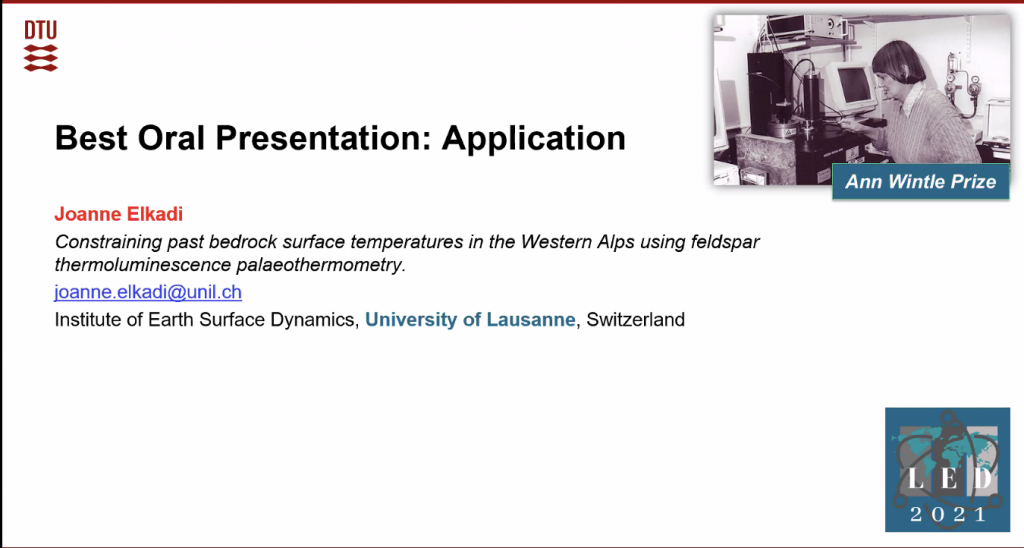Last week many members of ICE participated in the first virtual Luminescence and Electron Spin Resonance Dating (LED) conference. The conference organisers did a fantastic job of creating a dynamic online event, comprising a combination of zoom sessions, pre-recorded oral and poster presentations and the opportunity to discuss and socialise with colleagues via GatherTown. All of the PhD students did brilliantly at presenting their research, including Yuni and Xiaoxia who started earlier this year.
Yuni presented preliminary results of luminescence dating on fluvial sediments from Indonesia, whilst Xiaoxia presented her first ESR dose response curves for samples collected at Sion, which she is using to develop the ESR-thermochronometry technique. Chloé showed why the choice of temperatures for isothermal decay measurements is crucial for deriving robust thermal kinetic parameters from feldspar minerals, whilst Joanne presented her first luminescence palaeothermometry ages from Gornergrat, Zermatt. Joanne’s presentation was very well received by the community and she was awarded the Ann Wintle prize for best application – congratulations Joanne!
In addition to the PhD students, the senior researchers from ICE were also very active. Melanie presented her final results from exploring the effect of chemical weathering on the luminescence properties of feldspar, whilst Christoph presented his initial results from trying to apply rock surface exposure dating to pebbles from the Nazca lines in Peru.
The next LED meeting will take place in Denmark in 2023 – we are really looking forward to seeing our colleagues again in person and to discussing the latest developments in luminescence and ESR dating together then.

